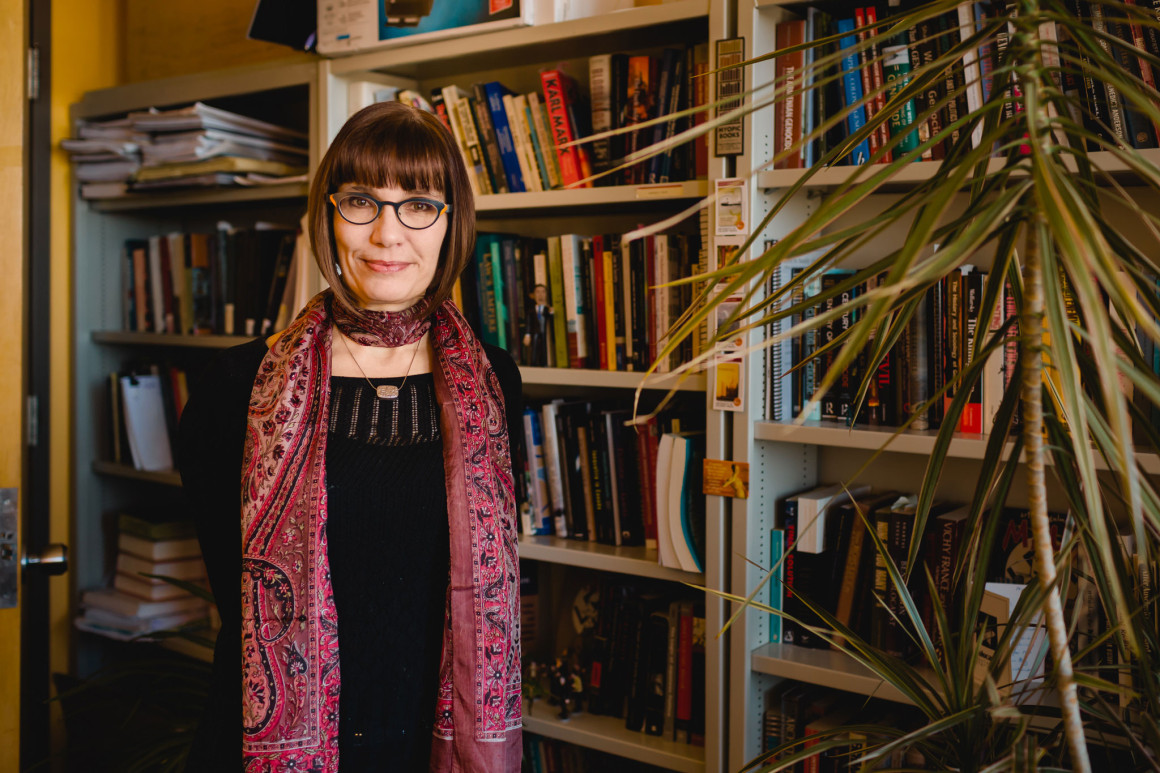
Class studies causes of genocide
By Scott Strasser, January 15 2015 —
From Ukraine to Poland, China to the Congo, tens of millions of people were killed in genocides during the 20th century. A popular University of Calgary political science class hopes to answer how and why this happened.
Students enrolled in POLI 470 will study the causes, processes and history behind cases of genocide including the Armenian genocide, the Holocaust, the Cambodian genocide and the Rwandan genocide.
Instructor Maureen Hiebert said the course starts with indigenous genocide, looking at how colonization led to indigenous destruction in North America, Latin America, Australia and New Zealand. The course also covers North American colonization, including Canada’s residential school history.
Students will study the aftermath of these cases to see how society reconciled and how the perpetrators were, or were not, punished.
Hiebert said the course is rewarding, but can be emotionally taxing.
“The one thing I tell students on the first day is that this is a psychologically difficult and emotional course. I don’t want to scare the students away, but some of the lectures are very heavy duty. Bring Kleenex to class, because you’ll need it,” Hiebert said.
Hiebert hopes the course will give students a better understanding of genocide as human behaviour.
“The whole idea that one group of people would decide that their project is to destroy an entire group permanently is mind-blowing,” Hiebert said. “It’s this extraordinary, terrible form of human behaviour that we as a class puzzle over for 13 weeks.”
Hiebert, who’s teaching POLI 470 for the third time, said the course has steadily become more popular. The Winter 2015 lecture filled up on the first day of registration.
The class is capped at 40 students, but high demand will likely increase that number.
Hiebert said much of the course is driven by class discussion.
“I think students are drawn to [POLI 470] for the same reason I was drawn to genocide as a researcher and grad student. It’s a persistent form of collective human behaviour over time. You can go all the way back to the ancient world and see this behaviour,” Hiebert said.
For the first essay, Hiebert will ask students to renegotiate the existing genocide conventions or pretend they’re advising the Canadian government on preventing genocide and how to intervene when it’s occurring.
The second essay is a 15-page paper due near the end of the semester. Students pick any current or historic genocide and uncover its causes, how it unfolded or the justice and reconciliation that followed.
Hiebert tries not to show films or use pictures in the course so students are forced to empathize with victims, perpetrators and bystanders on their own terms without visual aid.
“I think it’s good human education. It lets us think beyond our relatively safe and comfortable circumstances here and take a look at some of the worst aspects of human social and political behaviour,” Hiebert said.
